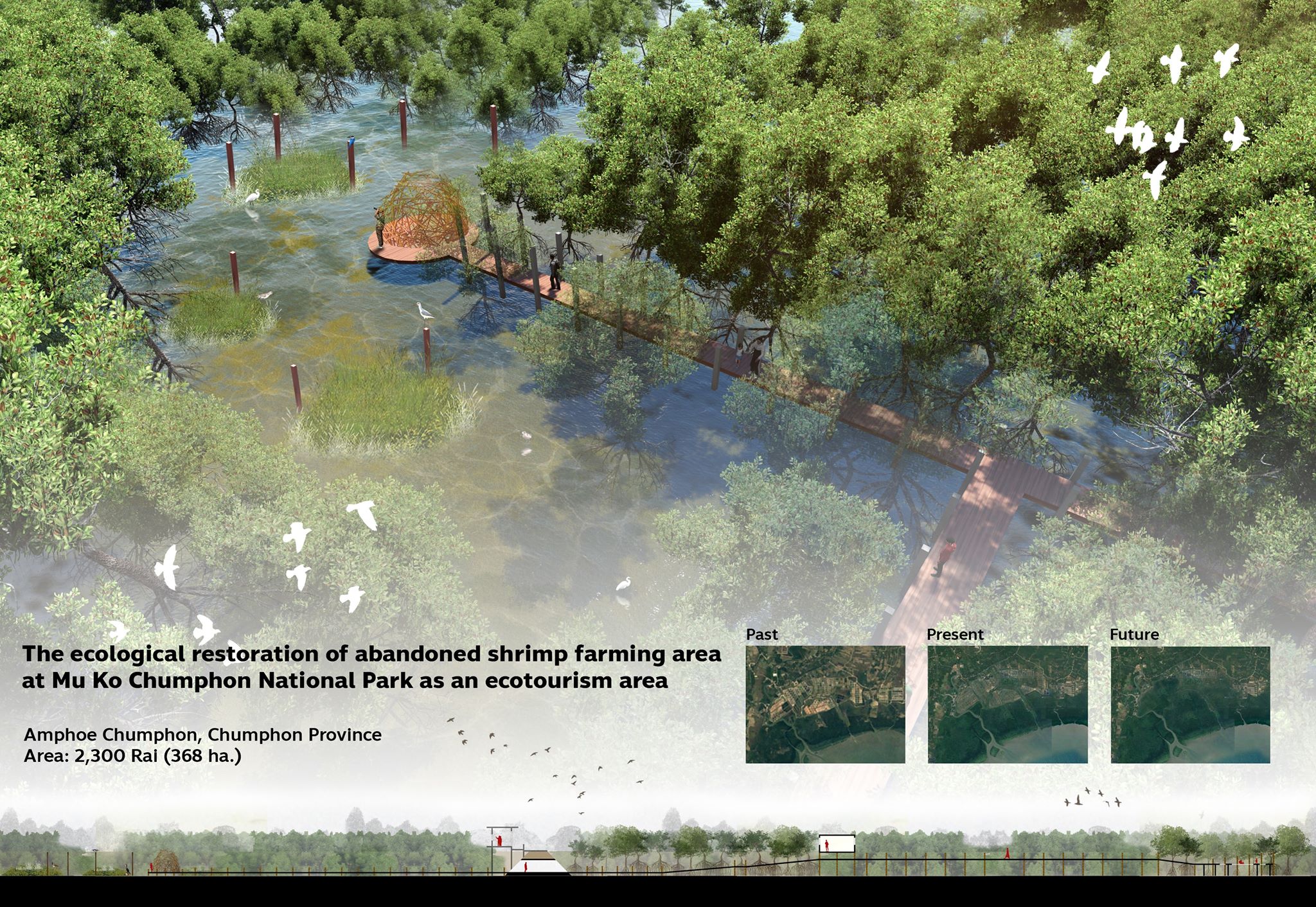
The ecological restoration of abandoned shrimp farming area at Mu Ko Chumphon National Park as an ecotourism area
Thesis (5th year)
Kasetsart Universuty
Although the mangrove forest ecosystem is one of the important and must-preserved ecosystems, nowadays mangrove forests were destroyed by a human for development activities such as agriculture, tourism industry and urban development. Mangrove forest in Mu Ko Chumphon National Park is one of the areas that was also destroyed by shrimp farming concession. However, currently, this area has been continually recovered by the department of Mu Ko Chumphon National Park and PTT PCL. The restoration process aims to regenerate the mangrove forests as an important source of the local livelihood as well as to facilitate ecotourism activities. Therefore, the purpose of this project is to present the mangrove ecological restoration concept.
The ecological restoration of abandoned shrimp farming area focused on the concept of Sustainable development that considers the balance of ecosystems, social and local economy. The site analysis revealed the site potential of becoming the new intensive zone for tourist bridging in-land and water route attractions. This project aims to restore and conserve the ecosystem by proposing activities that can coexisting with the restoration process through environmental learning and recreation activities. The planning and design process was divided into three phases following the restoration timing. The tourism and other activities were proposed in accordance with the area carrying capacity. Land use planning and landscape design were conducted with a consideration of minimal footprint that reduce the negative impact on the ecosystem, which can sustain the Mu Ko Chumphon National Park ecotourism as well as local habitat and livelihoods.
